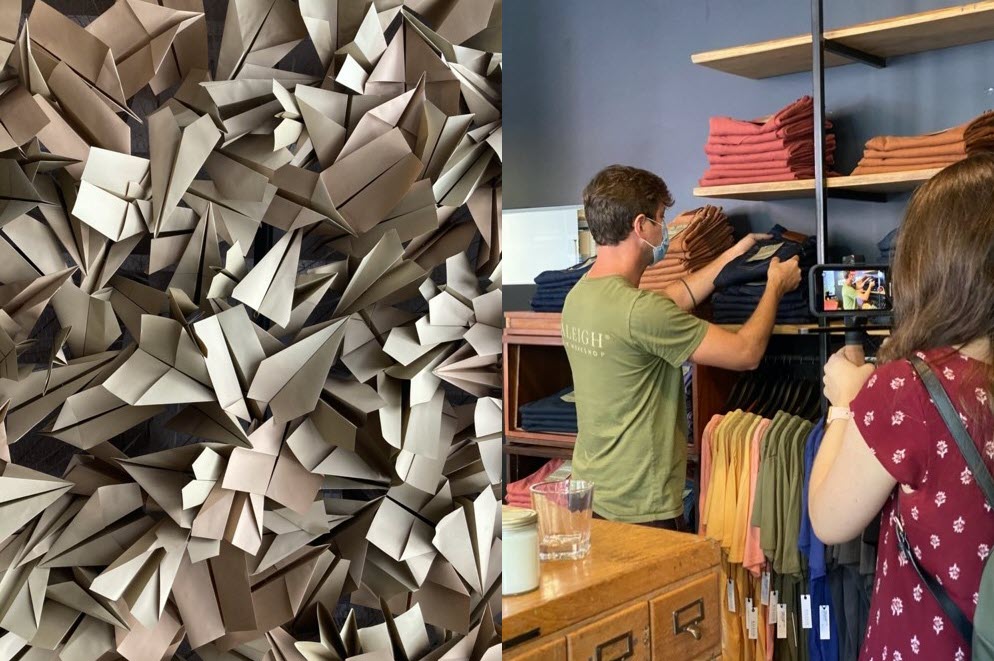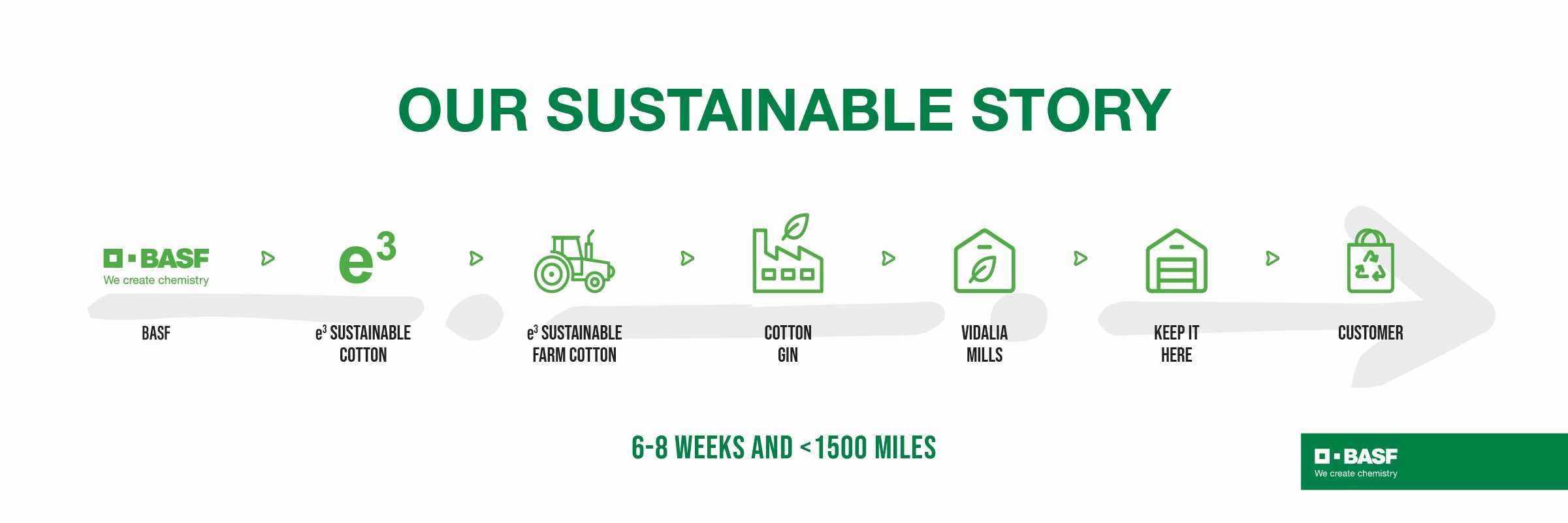e3 Sustainable Cotton from BASF and Raleigh Denim Workshop: Disrupting the Fashion Industry as We Know It
When you walk through downtown Raleigh you can’t help but be in awe of the melting pot that it has become. The mixture of old buildings combined with state-of-the-art modern marvels, people from all walks of life, from America and abroad, and businesses that range from worldwide corporations to local shops making a positive impact on the world.
As you enter the Warehouse District, perhaps the most vibrant area in the city, the smells of chocolate and BBQ overwhelm you, while the collection of sounds coming from cars, buzzing conversations, and construction let you know you’re in a special and eclectic section of town. As you meander through the neighborhood, you’re met with sushi restaurants that look like they should be in West Hollywood and hole in the wall diners that remind you that southern hospitality reigns supreme here.
But perhaps the most interesting thing about this area is the Raleigh Denim Workshop, tucked away in a brick building amid the street art that has become synonymous with the Raleigh cityscape.
Inside the walls of the workshop you’ll find a showroom artfully stocked with high-end denim, T-shirts, bracelets, and more. The ceiling is made up of paper airplanes, and the industrial modern décor subtly lets you know the products are made from quality goods. Behind the showroom is where the action happens. Seamstresses and sewing machines fill up the majority of the space, and behind that section lies the fabric that eventually becomes the jeans the company has become known for.

That fabric comes from Vidalia Mills in Louisiana, whose fabric is 100 percent e3 Sustainable Cotton, and yes some of the jeans that Raleigh Denim sells are made from BASF’s e3 Sustainable Cotton.
The e3 sustainable cotton story
e3 Sustainable Cotton tells a story. It tells the story of the farmer, the cotton, and it connects all of the players in the value chain from seed creation through to the consumer. It all starts with BASF and the creation of the cotton seed, from there the seed goes to the cotton farmer, the cotton gin, textile mills, and ultimately the consumer.

The process is completely traceable and e3 is the only cotton on the market that allows the consumer to trace the complete chain of custody, ensuring that the end product has been made that is economically viable, socially equitable, environmentally responsible way.
Simply put, e3 Sustainable Cotton provides an avenue to have a conversation and tell a story. It provides farmers the ability to stay in business and eventually pass the farm on to the next generation.
Leave only your footsteps
The fashion industry accounts for approximately 10 percent of humanity’s carbon emissions – that’s more than all international flights combined! Furthermore, 85 percent of all textiles go to the landfill each year – some of which take up to 200 years to biodegrade.
So, how is e3 different? The typical supply chain sees the jeans you’re wearing right now travel up to 20,000 miles during an eight-month production period, whereas e3 Sustainable Cotton travels less than 1,500 miles and takes only eight-weeks to produce. This equates to a 95 percent reduction in supply chain miles and a 75 percent reduction in total cycle time, all while providing domestic accessibility for brand designers and buyers.
Ask questions, but more importantly, listen to the stories
As the world continues to change, we must evolve our practices, and at BASF, e3 Sustainable Cotton is one way in which we have done so.
So, the next time you find yourself wandering down the street, take note of what’s around you and take the time to pop into the shop in your hometown that’s making a difference. Ask questions and find out the stories of the businesses in your neighborhood. You might just find one like Raleigh Denim Workshop who is not only making your favorite pair of jeans, they’re making jeans with a story, and an environmentally friendly and socially responsible one at that.
